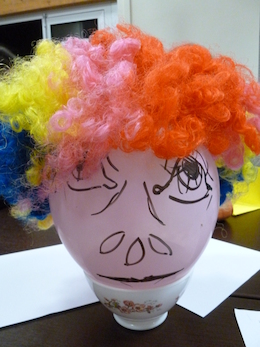Toolbox — For Training and Youth Work
All new tools in your inbox: Be the first to know about new tools for learning with our e-mail notifications.
Simulation Exercise
Intercultural game (Rafa Rafa)
In this simulation game, 2 groups make up their own cultures. They get time to discuss their behaviours, communication and interactions before they will be visited by a member of the other group. The aim of the visitors is to get to know all the rules.
Aims of the tool
We want the participants to:
- experience a new culture
- be more open towards foreigners in their own culture.
- think about how they could help foreigners to integrate their culture.
- reflect about their own cultural behaviours.
Description of the tool
Duration: at least 1,5 hours
Preparation time: at least 1hour if it’s the first time / 30 minutes if you know it well.
Number of participants: 12-40
Space: 2 rooms where groups can’t hear and see each other, place to sit during the evaluation
In this simulation game 2 groups make up their own cultures. They get time to discuss their behaviours, communication and interactions before they will be visited by a member of the other group. The aim of the visitors is to get to know all the rules and be able to explain the other culture to their own groups. Then, a second exchange will take place, but this time the visitor already knows some rules from the narrations of the first visitor. The visitors will have several social situations such as simple student, a homeless person or a high ranking politician, which the other group will not know before, so they will probably have to react differently.
Procedure:
The simulation game contains five steps:
1. Explanation: The game leaders will explain the following steps and divides the participants into 2 groups.
2. The group’s Preparation: In 20-25 minutes time the groups have to make up the rules of their new culture. It could be everything from simple greetings to different positions of men and women or religious procedures... The game leaders are available for questions during that time.
3. Exchange Simulation: Now, one person from each group leaves their group to visit the other to get to know their rules and try to interact with the people of this new culture. After 10 minutes the visitors returns to their own group and tell about their experiences made. Then, another person visits the other group and tries to fit in. Depending the participants abilities, you can add a 3rd visitor.
4. Presentation: After another 10 minutes, the groups join and present the other culture’s rules and manners with the experiences the visitors made and the narrations of the first visitor. Then, the other culture can correct or say what they thought about their rules.
5. Debate: In the last step, the game leaders ask questions to start a discussion about the meaning of this simulation game and to impart the objectives. Example questions could be:
• How does it feel not knowing the rules when you come to a different culture?
• How does it feel when someone from another culture doesn’t go by the rules of your culture?
• Sometime it’s hard to see that your own way of doing things is cultural. It’s easy to think that what you do is just normal and what other people do is cultural. Can you give examples of cultural things from your own behaviour or norms?
• What rules and expectations do you have in your culture that might not be obvious to other people?
• Do you have any experience in misunderstandings due to cultural differences?
• How can you make it easier for someone who is not used to your culture to feel comfortable and welcomed?
Option: In a second version the visitors can be advocates that will receive a small treasure from a president or mayor the group had selected before. He will get it if he follows all the rules. If he doesn’t, the president of the other group will shout ‘STOP’ and the advocate has to go back to his group. The groups decide whether they send the same person, another person or more than one person (depending on the number of participants it can be up to 1/3 of the group). The simulation ends when both groups have received the treasure or the game leader decides it is right to end the simulation. Now the debate follows as usual.
Available downloads:
Disclaimer
SALTO cannot be held responsible for the inappropriate use of these training tools. Always adapt training tools to your aims, context, target group and to your own skills! These tools have been used in a variety of formats and situations. Please notify SALTO should you know about the origin of or copyright on this tool.
Tool overview

http://toolbox.salto-youth.net/1502
This tool is for
Teenagers/Adults
and addresses
Anti-Racism, Intercultural Learning, European Citizenship
Materials needed:
Papers, pencils
Fancy clothes
Behind the tool
The tool was created by
Unknown.
(If you can claim authorship of this tool, please contact !)
The tool was created in the context of
as a simulation project created by participants
The tool has been experimented in
Training
The tool was published to the Toolbox by
Geoffrey Vigour (on 17 February 2014)
and last modified
11 February 2014
Comments
No comments have been posted yet.
If you want to comment on this tool, you need to be signed in with your MySALTO account. Sign in now